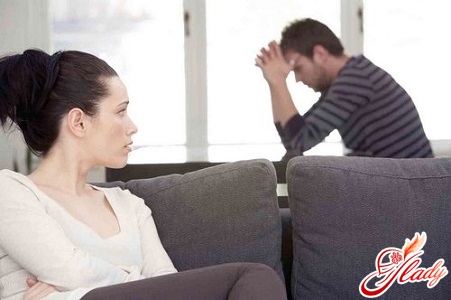 Our society is entirely and completely tied tocommunication. A successful person is supposed to be active, communicative and easy-going. Fear of people, or social phobia, does not fit into this ideal image at all. Statistics are relentless: about five percent of the world's adult population is familiar with this sad disorder. How can you tell if you have this phobia? What are its causes and symptoms? How can you get rid of it? Find answers to your questions in our article.
Our society is entirely and completely tied tocommunication. A successful person is supposed to be active, communicative and easy-going. Fear of people, or social phobia, does not fit into this ideal image at all. Statistics are relentless: about five percent of the world's adult population is familiar with this sad disorder. How can you tell if you have this phobia? What are its causes and symptoms? How can you get rid of it? Find answers to your questions in our article.
Fear of people: causes
It is quite natural that when speaking about anyphenomenon, you want to know where its “legs grow from”. Some psychologists adhere to the version that the fear of people is a phobia invented by modern society. They say that when a person fails at something, he hangs the label of “sociophobe” on himself and calmly disowns possible undertakings. But this only explains the behavior of young people and teenagers, but not mature individuals who, nevertheless, find themselves captive to their own fear. What factors influence the appearance of this disorder?
- Anatomy and Physiology Currently there areseveral medical versions concerning social phobia. Some scientists believe that the culprit is a genetic predisposition to intense experience of fear, which may well be passed on from parents. Others suggest that it is all about disorders in the structure of the nervous system, which cause an imbalance of hormones in the body. For example, a lack of serotonin may well be involved in the manifestations of social phobia.
- Character Already in childhood one can observe that everythingPeople behave differently. Some are calm and silent, while others are constantly “looking for trouble.” They are sociable, approachable, and feel “like a fish in water” among new kids. Future sociophobes are usually characterized by anxiety, secrecy, and an unwillingness to separate from their mother. You only have to try to talk to them - and fifteen minutes of heart-rending crying are guaranteed.
- Ridicule from others Unfortunately, this is trueIt happens quite often that a modest and shy child faces misunderstanding from his peers, and sometimes even from teachers. The fear of seeming ridiculous and awkward is intensified by the negative reaction of others, which further increases their aggression. Thus, a vicious circle is created, as a result of which the child becomes an outcast.
- Long-term stress Not always a phobia occursis connected precisely with communicative psychological traumas. The child's psyche is structured in such a way that when he cannot cope with circumstances that are too difficult for him, a negative symptom "crawls out" in one area or another. But, as a rule, all these stresses are connected with a lack of support and an inferiority complex.
- Parental overprotection When a couple has a babychild, they want the best for him. And very imperceptibly they cross the line between simple care and overprotection. How does this manifest itself? In constant phone calls to the child, a bunch of norms and rules, sometimes completely unnecessary, a strict daily routine and other restrictions, disguised as the idea of “we want the best for you” or “you must grow up to be a good person”. All this does not allow the child to fully come into contact with the real world, because parental actions distort his perception. And subsequently, the child develops a phobia in relation to reality.
- Lack of social skills If we talk aboutsome restrictions, they somehow deprive the child of the opportunity to acquire important and useful experience, especially in communication with other people. For example, a mother who does not allow other children to offend hers, without knowing it, deprives him of the ability to stand up for himself and protect his boundaries. Since this experience turns out to be very small compared to other people, the already grown child does not have an adequate idea of the norms of behavior in society, especially informal ones.
- Lack of love Many problems in lifea person “grows up” from the banal lack of love of the child by his parents. He subconsciously grows up with the feeling that the world is hostile, and the people inhabiting it will always humiliate, offend, and push away. Naturally, he strives to avoid such negative experiences, and from this fear a phobia is formed.
- Imitation of parents Another reason whywhy some people are afraid of communication. How does a child grow and develop? He looks at his parents and uncritically absorbs their manners, attitudes, attitudes to the world and behavior patterns. If the parents lead a closed and unsociable lifestyle, are wary of new people, and communication is not a joy for them, but a source of stress and problems, then there is a high probability that the child will inherit their worldview.
- Violence in any form becomes a cause andsource of many personal problems. The psyche resembles plasticine, on which all more or less significant events of our life leave traces. If a person has experienced violence, then he will now perceive all people as a source of potential threat. Any phobia, including those concerning people, will flourish on this basis, because the energy that such psychological trauma as violence carries is very, very strong.

Symptoms of social phobia
In general, it has become fashionable to useserious psychiatric terms in common use. You can hear words like “depression”, “phobia”, “delirium”, etc. everywhere. But behind each of them there is a particular mental disorder or borderline condition! Naturally, our readers are interested in specific symptoms, on the basis of which one can draw a conclusion about the severity of a particular condition. So, how does this phobia manifest itself? Symptoms of social phobia are divided into mental and physical. Naturally, the latter are a reflection of the former. The basis of the whole complex is a person’s desire to avoid situations that are perceived by him as critical. These include any situations that require communication: answering questions from strangers, public speaking, going to a cafe, taking an exam, etc. All this causes extreme anxiety in the sociophobe. He also has special personality traits. The sociophobe is very afraid of criticism, both objective and subjective. This is due to the fact that he has extremely low self-esteem. He is distinguished by pronounced shyness, due to which he sometimes cannot even utter a word in the presence of strangers. His thoughts are characterized by a special obsession, due to which they are constantly reduced to playing out alarming situations that “threaten” the sociophobe. All this is further complicated by the fact that he tries to hide his anxiety and “inferiority” from other people. Naturally, this only leads to an increase in symptoms. But all this is rarely realized by a person who has this phobia. First of all, he suffers from physical manifestations of the disorder. Almost always, so-called “clamps” in the voice and chest appear. They are associated with the anxiety described above, which sometimes develops into animal fear. It also manifests itself in the form of trembling in the hands, rapid heartbeat, stiffness and tension of the muscles, dry mouth and sweating. There may be dizziness and headaches. A person's temperature sensitivity sometimes changes, which leads to a feeling of sudden cold or heat. Accordingly, fear of people can manifest itself as a more or less pronounced personal fear, or as a phobia. In the first case, the symptoms described above are simply less intense, or some of them may be absent. At the same time, in the second case, there is a serious problem, manifested in the person's falling out of social life. All these symptoms lead to the fact that the unfortunate sociophobe simply stops leaving the house! Well, or tries to do this only in case of extreme necessity. Of course, there can be no talk of a happy or even normal life.
How to get rid of the intolerance of society?
People who have a phobia, notjust discomfort in communication, should seek help from a psychotherapist. The fact is that self-medication of borderline mental disorders can have very unpleasant consequences. The doctor will very carefully and correctly establish a diagnosis, checking that you have a phobia, and not something else, prescribe adequate medication and select a method of psychotherapy that is suitable specifically for you. Phobia, including that associated with fear of people, can be corrected within the framework of a variety of psychotherapeutic approaches. Psychoanalysis, in particular, works very deeply and allows you to first recognize all your “weak” spots, and then reconstruct your personality in order to improve your quality of life. Unpleasant symptoms in this case go away on their own. Sometimes psychotherapists resort to methods of rational psychotherapy, clearly showing the patient what the destructiveness of their thoughts and life attitudes is. Adherents of the gestalt approach focus on the feelings and life experience of a person, allowing him to find areas where there is tension and relieve it. Thus, an experienced specialist will be able to work with you in the way that suits you and your resources. However, if you notice that you do not yet have a phobia, but a habit that is starting to cause inconvenience, you can resort to the help of psychological recommendations offered by us below:
In no case should you think that the problemwill resolve itself, and fear and mistrust of people will pass one fine day. Therefore, work on yourself and take care of your mental health, because without it you will never be able to become happy and successful!









